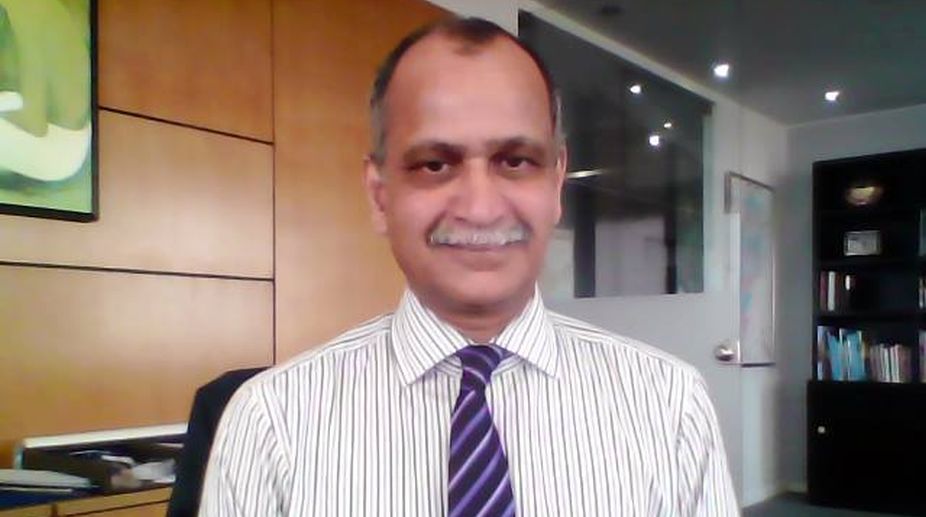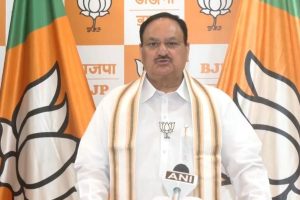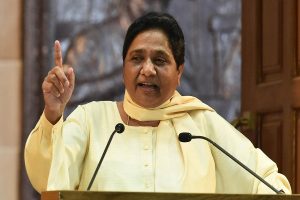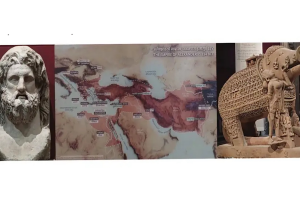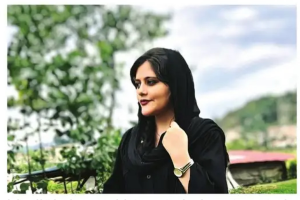A 1981 batch officer of the Indian Foreign Service (IFS), Amarendra Khatua has had several important assignments during his 35-year-long diplomatic career. Considered a quiet but immensely focused diplomat, Khatua has held trade and economic positions in various Indian missions and served in different capacities in key divisions at the MEA. He has also served in the Ministry of Commerce & Industry, Planning Commission and Ministry of Industry. He assumed charge as Director General, Indian Council for Cultural Relations (ICCR), in September last year. Prior to this appointment, he was Dean, Foreign Service Institute, and Ambassador of India to Argentina. He has also served as special envoy to South Sudan and Sudan to broker peace between the two countries.
In this interview to Ashok Tuteja, Khatua talks about his role in the prestigious ICCR assignment and how he proposes to project India's 'soft power' image abroad.
Q: You have taken charge of the ICCR recently. What are your priorities in this new assignment?
A: My priorities include streamlining the process through which we facilitate, promote and export our soft power footprints to the global arena through bilateral and multilateral diplomatic and cultural exchanges. Establishing regular, better and delivery-based coordination with the territorial divisions of the Ministry of External Affairs, like ministries and departments of the Government of India, especially with the Ministries of Culture, HRD, Ayush, Tourism and Commerce, with our missions abroad and foreign missions in New Delhi is also a priority engagement area.
Q: What is your vision of the ICCR as a vehicle to promote India’s cultural ties with other friendly nations?
A: Both the Prime Minister and External Affairs Minister lay emphasis on developing unique and universal cultural modules of India based on our age old tradition, civilisation, literature, crafts, practices and performing arts and carrying them in systematic and planned ways to the world and especially to the Diaspora countries. Inclusion of yoga, Ayurveda, Diaspora linkage and festivals of India coinciding with visits and landmark commemorations can promote our cultural ties with the world.
Q: How do you look at the role of cultural diplomacy in promoting diplomatic relations?
A: Diplomacy today is all-encompassing. Cultural diplomacy promotes visible people-to-people contact and opens up avenues which can lead to commercial, consular and political gains through indirect yet impressive ways. Cultural diplomacy promotes tourism, projects folk and traditional diversities and stirs Diaspora activities and participation. Be it performing arts, or Bollywood or theatre or Ram Leela or Sanskrit, using the potent tools of Indian tradition and culture to reach out to the world generates interest, acceptance and recognition and helps in promoting better bilateral relations with countries. For Diaspora countries, cultural diplomacy is a must for continuity and greater exchanges.
Q: Which are the countries with whom you propose to have partnerships in the field of culture in the coming months?
A: Based on celebration of years of establishment of diplomatic relationship and commemorating special events, we plan days and weeks of culture or festivals in India or outside India. In the coming months major events are being planned with and by countries including France, UK, Israel, Japan, Korea, Vietnam, Belarus, Iran, Spain and Mexico.
Q: Are there any specific plans for India’s neighbourhood?
A: At present we are organising a number of major events in Nepal which includes projection of folk dance and arts of North East, jazz and rock music, academic seminars and meets and classical performing arts shows. A festival of Kashmir was recently organised in Nepal. On continuing basis we are sending and receiving troupes from Maldives, Bhutan, Bangladesh and Sri Lanka. In fact all these countries will be hosting Indian cultural troupes during the celebration of Republic Day in 2017. Five Indian authors will also be participating in the Karachi Literary Festival this year.
Q: Could you please identify the countries where we currently have India Cultural Centres? How many more India Cultural Centres are proposed to be opened this year and where?
A: India has 37 cultural centres abroad in 35 countries namely Afghanistan, Australia, Bhutan, Bangladesh, Brazil, China, Czech Republic, Egypt, Fiji, Germany, Guyana, Hungary, Indonesia, Iran, Japan, Kazakhstan, Malaysia, Mauritius, Maldives, Mexico, Myanmar, Nepal, Netherlands, Republic of Korea, Russia, South Africa, Sri Lanka, Suriname, Tanzania, Thailand, Tajikistan, Trinidad & Tobago, United Kingdom, Uzbekistan and Vietnam. Establishment of Cultural Centres in Paris and Washington is under active consideration. India proposes to open a few more cultural centres.
Q: How do you propose to project India’s ‘soft power’ image?
A: India’s soft power image will be projected by covering the foreign students studying under ICCR scholarships as a constituency of goodwill in those countries. A monitoring and e-portal based initiative called ‘Arrival-to- Alumni’ is being introduced to help us in this regard. Follow up action linked to inbound and outbound cultural troupes are being taken to foster continuity. Instead of teaching yoga, we are now sending teachers to teach yoga, Vedas and Sanskrit. Instead of sending professors, we are now deputing experienced secondary school teachers to teach Hindi in centres abroad. Strengthening our centres and their activities abroad are being processed. Chairs are being set up with care and due selection of professors with ability and expertise is being done by an experts’ panel of vice chancellors. ICCR is working closely with Ministry of Culture to execute Festivals of India and with Ayush, ITPO, Tourism Ministry, etc., to promote specialised forms of traditional knowledge and cultural promotion activities.
Q: What are your plans to propagate ‘Yoga’ and ‘Ayurveda’?
A: Selection of teachers to teach yoga, Sanskrit and Vedas has commenced. Centres are being strengthened to support India’s yoga penetration initiative globally. Introduction of Ayurveda chairs to promote Ayurveda and its pharmacopeia in a number of countries has taken place. Our effort to promote Ayurveda in South East Asia has been a success. Plans to promote both through institutions, universities, research institutions and at mass level promotional events are being set afoot.
Q: The ICCR has also taken steps to promote Sanskrit by instituting an award which was given to the Princess of Thailand last year. Will we see any other initiatives by the ICCR this year to promote other Indian languages?
A: Promotion of Bhojpuri in Mauritius, promotion of Hindi learning among Diaspora children, promotion of Sanskrit in UK school system, etc., are some of the projects to promote Indian languages abroad. ICCR assists a number of Diaspora bodies to promote Indian languages, to organise workshops, for publication activities, etc.
Q: What role do you perceive for the Indian Diaspora in projecting India’s image abroad?
A: Each of the members of Indian Diaspora is an ambassador for Indian cultural mores. ICCR makes conscious and planned efforts to involve them in knowing India, participating and learning Indian culture and performing arts, furthering their knowledge.

